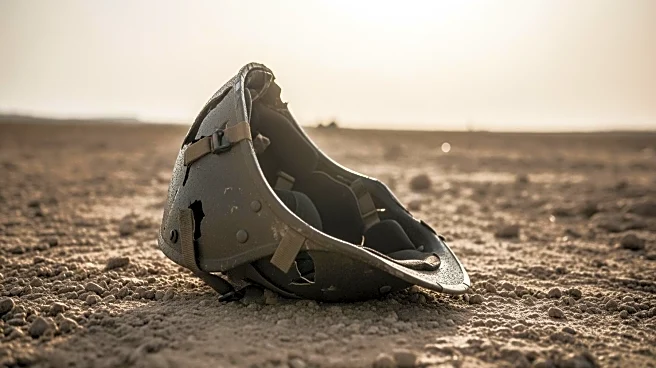What's Happening?
Major General (res.) Yaakov Amidror, former head of Israel’s National Security Council, has commented on the current situation in Gaza, stating that while Hamas has lost significant military power over
the past two years, it continues to exert control over Palestinian civilians. Amidror, now a senior fellow at the Jerusalem Institute for Strategy and Security, described the ceasefire as 'vague and fragile,' reflecting a period of transformation. Despite the reduction in military threat to Israel, Hamas remains the dominant force in Gaza, influencing critical aspects of life such as food distribution and security. Amidror criticized the international community for its perceived double standards, highlighting the ongoing executions of Palestinians by Hamas, which he claims are overlooked while Israel's actions are condemned.
Why It's Important?
The remarks by Amidror underscore the complex dynamics in Gaza, where despite military setbacks, Hamas retains significant control over civilian life. This situation poses challenges for regional stability and humanitarian conditions in Gaza. The international community's response, as noted by Amidror, could influence diplomatic relations and policy decisions regarding the Israeli-Palestinian conflict. The continued influence of Hamas in Gaza affects peace efforts and the security landscape in the region, impacting both local populations and broader geopolitical strategies.
What's Next?
The future of Gaza's governance and security remains uncertain, with the ceasefire described as fragile. Potential developments could include further international diplomatic efforts to address the humanitarian situation and pressure on Hamas to relinquish control. The Israeli government and international stakeholders may seek to strengthen the ceasefire and promote stability in the region. Amidror's comments may prompt discussions on the effectiveness of current strategies and the need for new approaches to address the ongoing issues in Gaza.
Beyond the Headlines
The situation in Gaza highlights broader ethical and humanitarian concerns, including the rights of civilians under Hamas' control and the international community's role in addressing these issues. The ongoing conflict raises questions about the balance between security measures and humanitarian aid, as well as the long-term implications for peace and stability in the Middle East.









